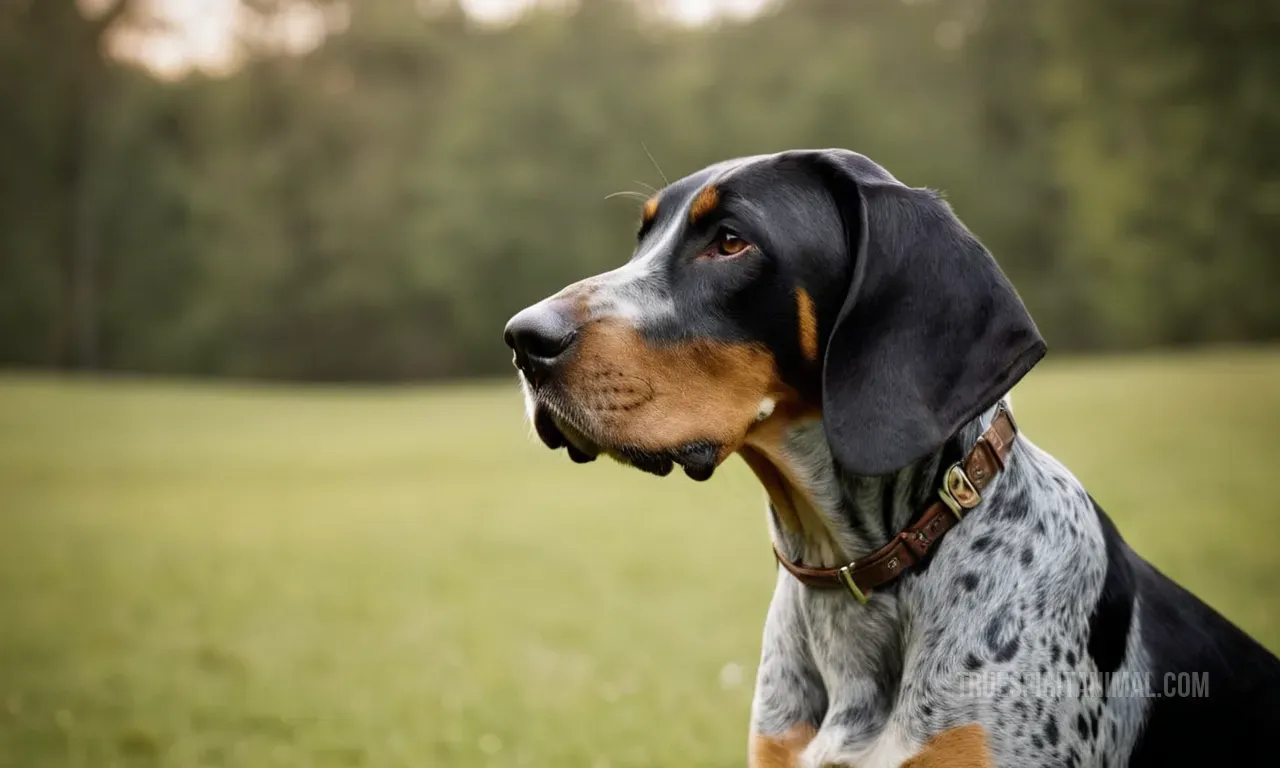Sleeping Requirements and Sleeping Habits of the Bluetick Coonhound

Understanding the sleeping requirements and habits of your Bluetick Coonhound is important for their overall health and well-being. Like all dogs, Bluetick Coonhounds have specific needs when it comes to sleep and rest.
Sleeping Hours
Bluetick Coonhounds, like most adult dogs, typically require around 12 to 14 hours of sleep per day. Puppies and younger dogs may need even more sleep, often up to 18 to 20 hours per day. However, it's important to note that dogs don't sleep through the night as humans do. They have a polyphasic sleep pattern, meaning they sleep in multiple short cycles throughout the day and night.
Sleeping Locations
Bluetick Coonhounds are social animals and often prefer to sleep close to their human family members. Many enjoy sleeping indoors with their owners, either in their own bed or in a crate. Providing a comfortable and safe sleeping area is essential to ensure they get the rest they need.
Sleeping Habits
Bluetick Coonhounds are known for their ability to adapt to their family's schedule. They are often alert during the day and can be active when engaged in play or outdoor activities. However, they tend to settle down and rest when not actively occupied.
They may have periods of deep sleep, characterised by slower, more rhythmic breathing, and REM (rapid eye movement) sleep, during which they may twitch, move their legs, or even vocalise. These phases are all part of a dog's normal sleep cycle.
Creating a Sleep Routine
Establishing a regular sleep routine can help your Bluetick Coonhound get the rest they need:
- Consistent Schedule: Try to stick to a consistent schedule for feeding, exercise, and bedtime. This routine can help them understand when it's time to rest.
- Quiet and Comfortable Space: Ensure their sleeping area is quiet, comfortable, and away from distractions or noise that could disrupt their sleep.
- Adequate Exercise: Providing enough physical and mental exercise during the day can help them sleep more soundly at night.
- Crate Training: If you choose to crate train your Bluetick Coonhound, ensure the crate is a comfortable and safe place for them to sleep.
- Attention to Health: Keep an eye on their health, as discomfort or pain can affect their sleep. If you notice any changes in their sleep patterns or behaviour, consult with a veterinarian.
Do Bluetick Coonhounds Snore?
Bluetick Coonhounds, like many breeds with loose jowls and facial skin, can be prone to snoring. Snoring in dogs is usually harmless but can be exacerbated by obesity or other health issues. If your Bluetick Coonhound's snoring becomes unusually loud or is accompanied by other concerning symptoms, consult with a veterinarian to rule out any underlying problems.
In conclusion, understanding the sleeping requirements and habits of your Bluetick Coonhound is essential for their overall health and well-being. Providing a comfortable sleeping environment and maintaining a consistent routine will help ensure they get the rest they need to stay happy and healthy.
Bluetick Coonhound puppies for sale
- Find Bluetick Coonhound puppies for sale in ACT
- Find Bluetick Coonhound puppies for sale in NSW
- Find Bluetick Coonhound puppies for sale in NT
- Find Bluetick Coonhound puppies for sale in QLD
- Find Bluetick Coonhound puppies for sale in SA
- Find Bluetick Coonhound puppies for sale in TAS
- Find Bluetick Coonhound puppies for sale in VIC
- Find Bluetick Coonhound puppies for sale in WA